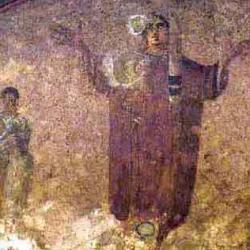What does Yahweh mean when He introduces Himself to Moses as ‘ehyeh ʾăšer ‘ehyeh (Exodus 3)? Victor Hamilton (Exodus) notes that the traditional translation “I am who I am” is too constricting. Grammatically the phrase has multiple possible meanings: “The term ‘ehyeh is a first-person imperfect of the verb hāyâ (‘be’) and equals the English ‘I was,’ ‘I am,’ and ‘I will be.’ Plus, ‘WHO’ in ‘I AM WHO I AM’ may also mean ‘WHAT, THAT,’ thus adding to the possibilities.... Read more
















